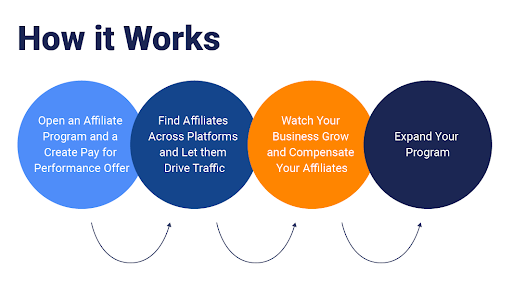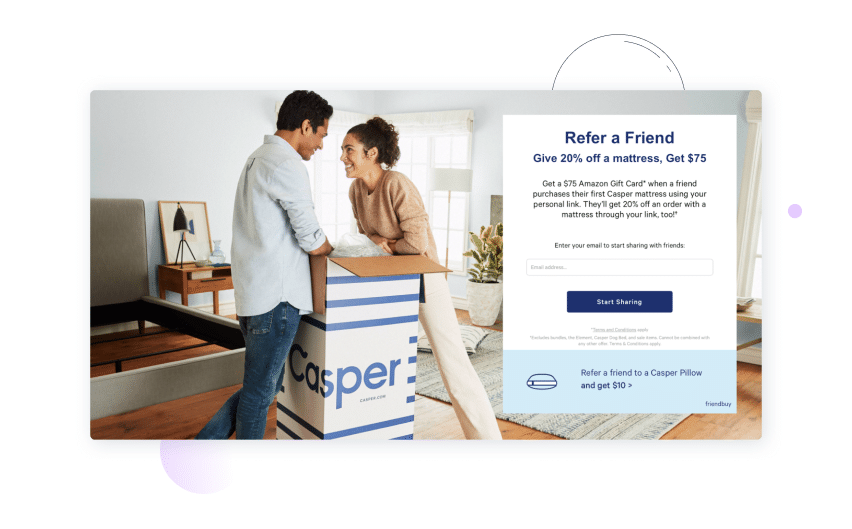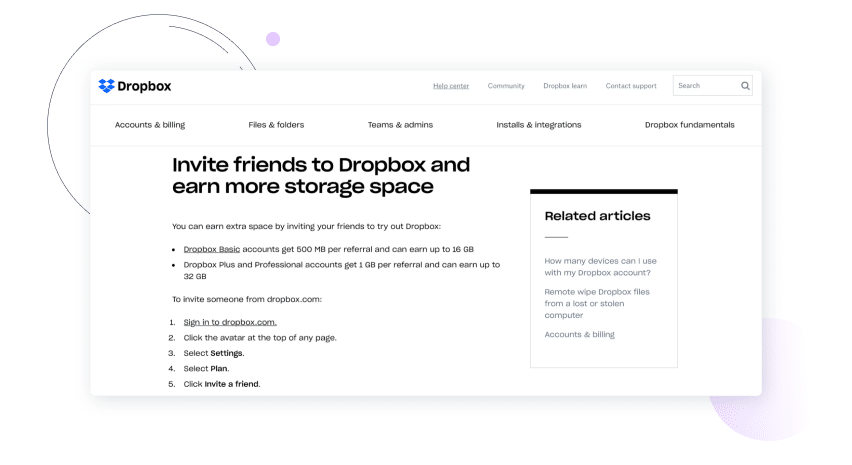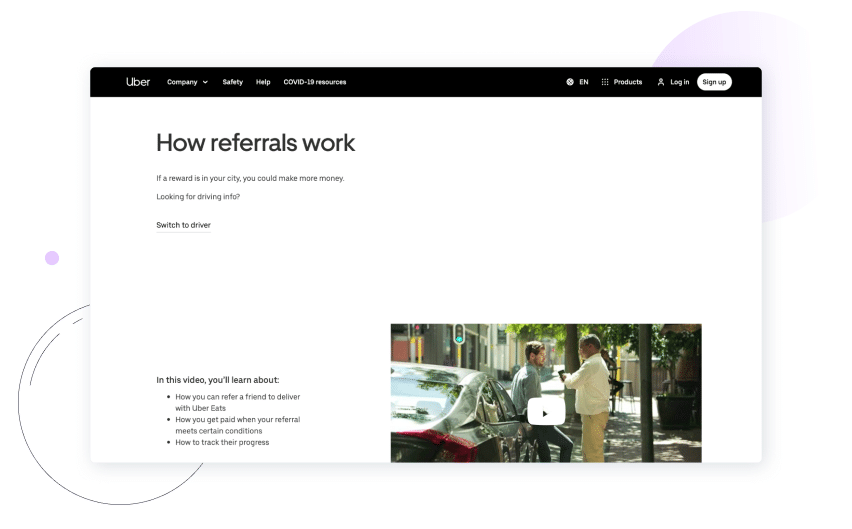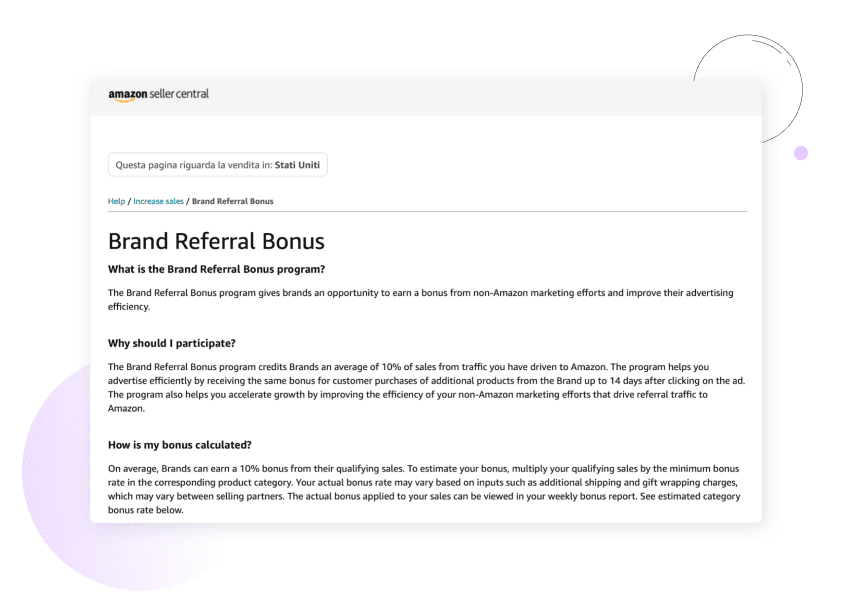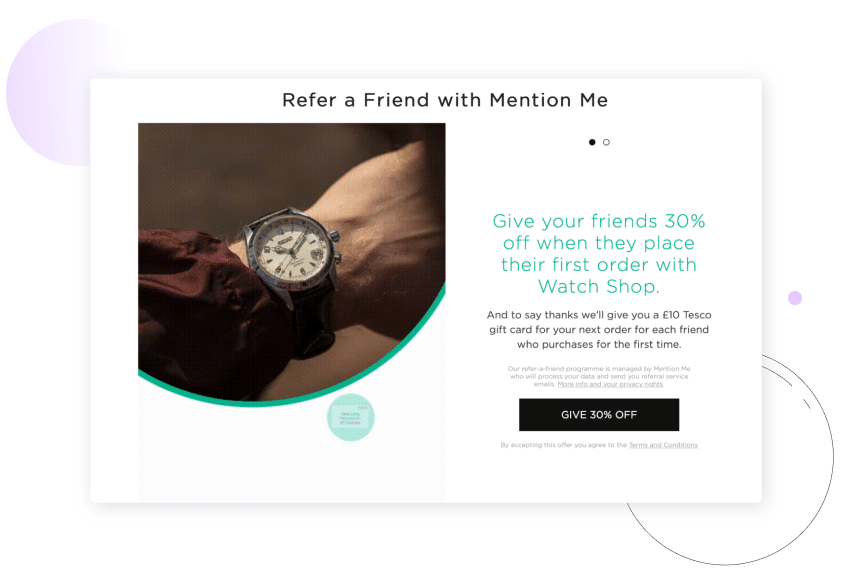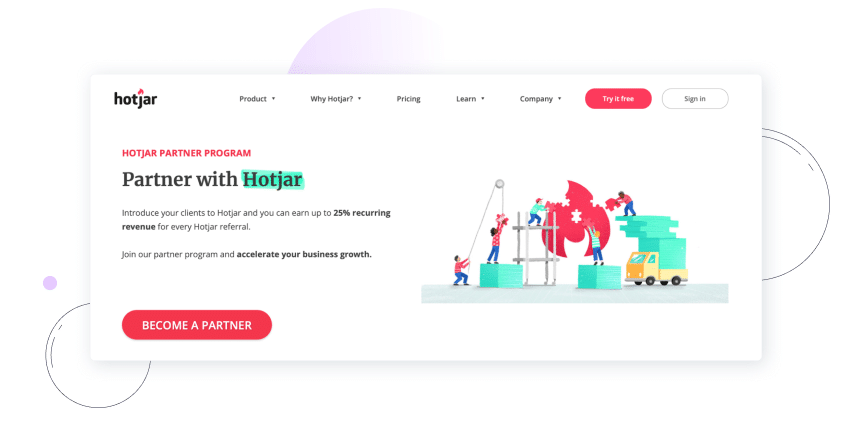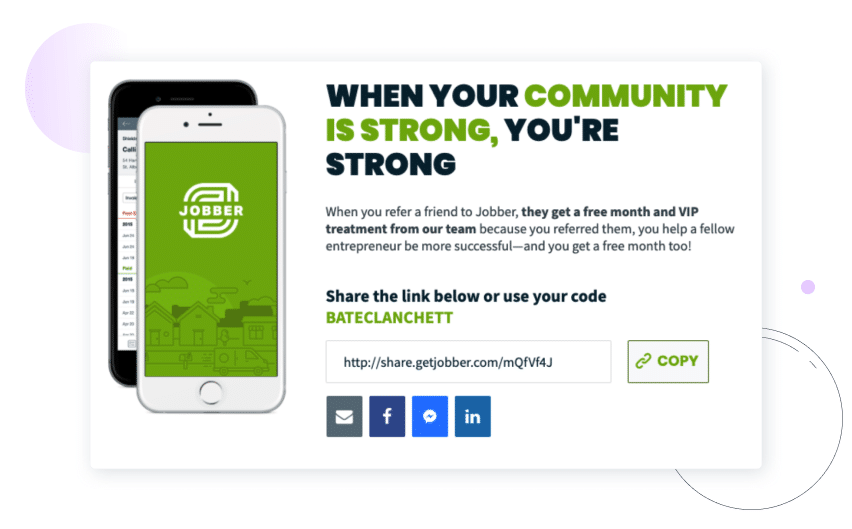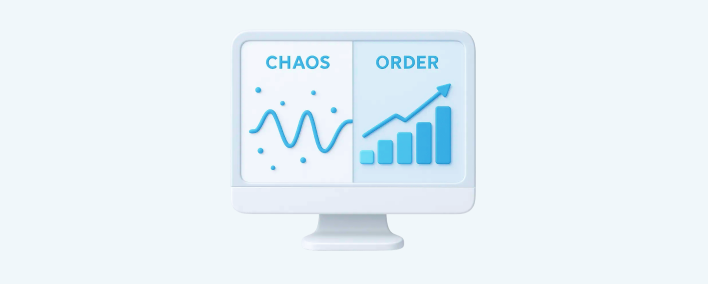With a centralized platform in place, it’s time to start creating bespoke resources to share with your audience. These resources will form the central pillar of your referral program promotions.
Ideally, you’ll want to pursue multiple promotional channels in order to widen the reach of your campaign. Consider promoting your affiliate messaging via newsletters, emails, social media, blogs, videos, landing pages, and product updates regularly.
Some brands choose to create their own bespoke referral kits complete with all the resources necessary for partners to share with their audience and friends. Kits tend to include things like case studies, scripts, eBooks, videos, informative documents, etc.
Identify referral incentives
Next up, it’s time to start thinking of some killer incentives. Incentives and rewards are a super important part of any referral program. This is what will incentivize and motivate your customers and partners to make those referrals. There are many kinds of incentives and rewards to choose from, so it’s best to think about what will work effectively for your type of business.
Here are some options to choose from:
- Friend offers: These offers encourage existing customers who already know and love your brand to share it with friends and family who will receive some kind of friend reward or discount. For example, 10% off their next purchase or free products or a free month of services.
- Advocate rewards: Advocate rewards reward customer advocates who send a referral link to their friends. These rewards typically take the form of coupon codes, store credit, fixed cash rewards, or custom rewards like a free gift.
- Two-sided referrals: These referrals reward both the person referring and the recipient of the referral. When a referral is issued successfully, the advocate will receive an advocate reward and the new customer will receive a friend offer.
Make a landing page
This one is often overlooked when it comes to optimizing referral programs. Businesses tend to focus more on their offers and sourcing their advocates, and often forget about the importance of their own website and (specifically) landing page in the process.
When it comes to managing referrals, it is of utmost importance that your brand has a central destination where existing and new customers can access your referral program.
Your referral page should be clear, concise, and—most importantly—easy to find! Ensure that all referral links work effectively and direct customers quickly to your referral landing page. Here they should immediately find your key message, a clear CTA, and information about how they can submit or claim referral rewards.
Many businesses choose to include a digital referral form from which customers can make referrals to friends, family, and contacts quickly and easily directly from the website itself.
Spread the word
The time has come to get your message out there and spread the word. You need to market your referral program across numerous channels including email, social media (e.g. LinkedIn, Instagram, Facebook, Twitter), on your website, landing page, checkout page, customer pages, blog posts, and more. If you want people to know about, and engage with, your referral program, then you need to promote it!
And here’s how.
- Promote your referral program on your landing page: Ensure that you include a clear link to your website in all referring content, as well as a link to your referral program on your main landing page. You can incorporate these links as catchy CTAs within announcement bars, menu bars, website footers, or even as part of a widget.
- Remind customers about your referral program at checkout: Once customers have reached the checkout, remind them about your referral program and prompt them to sign up. At this point in the customer journey, your customers are enthusiastic enough about your brand to make a purchase, so they’re more likely to be willing to refer you on.
They may not participate first time around, but if they become a recurring customer then you’ll have set the referral process in motion and built awareness about your referral program.
- Let customers know about your referral program via email campaigns: Send out automated email reminders at strategic points throughout the customer journey (e.g., after a sale) to remind customers about your referral program. Try using an enticing offer and CTA to engage customers and encourage participation in your referral program.
- Mention your referral program on product packaging and in product descriptions: If your business makes physical products then make sure you’re making the most of all of that packaging. Provide information about your referral program on your product packaging or create a separate brochure that can be placed inside.
- Link to your referral program on social media: Incorporate your referral marketing in your business content. Include mention of your referral program and offers when posting content on your social media channels. Pair it with an eye-catching image and a catchy CTA to encourage users to click through to your landing page.
- Ask your top referees to promote your referral program in their sphere: Hone in on your top referees and ask them to actively promote your referral program. They’re already acting as brand advocates with their friends, family, and contacts, so these are the people who are likely to be more receptive to doing promotional work on your behalf. Rewarding your top referees will encourage further participation, loyalty, and satisfaction.
Improve your referral program
Last, but not least, remember to treat your referral program like a living organism. You need to keep working on it even after your campaign is launched. One of the best ways to achieve this is with statistical analysis and metric tracking.
Statistics analysis can help grow your partner marketing business exponentially by helping you create more realistic business goals, locate your ideal audience, manage company finances, align with trends, and improve business decision making based on precision data.
Monitoring your key performance metrics and seeking customer feedback regularly will help you work out what’s working and what’s not in your referral program.
By doing this, you can constantly tweak and improve your referral marketing tactics for optimum results. Some businesses, for example, send out periodic customer feedback surveys asking customers what they like and dislike about their referral program and what could be improved.
Technology also offers tremendous scope when it comes to making targeted improvements to your program.
Digital products such as Affise BI can help you manage all of your unstructured data from across multiple marketing channels. Thus allowing even those without a technical background to mobilize the power of data when making business decisions. Plus, with Affise CPAPI, you’ll be able to transfer data and connect your systems with offer sources.













